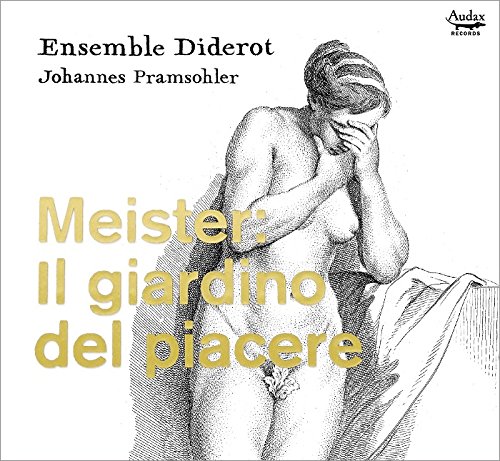Some enchanted afternoon in Camden Town… the Proms returned to the Roundhouse after four decades with a dreamlike fusion of sound, space and light. Ron Arad’s Curtain Call – a 360° installation of 5,600 sillicon rods – encircled the London Sinfonietta and audience in its luminescent embrace, a haze of microtonal music slinking through a sequence of glimmering projections.

Remarkably, Pierre Boulez made his first appearance at the Edinburgh International Festival way back in 1948, at only the Festival’s second ever outing, in charge of music for director Jean-Louis Barrault’s production of Hamlet. He remained a regular visitor across the decades, and following his death in January, the EIF’s Pierre Boulez: A Festival Celebration was a late but clearly necessary addition to the Festival’s already bulging classical programme.
It's not so long since Daniel Barenboim sat around a table with Israeli officials telling him that Wagner couldn't be played in the homeland when someone's mobile fanfared the "Ride of the Valkyries", demolishing the opposition's case. At the opposite end of the scale to all that flash of battle-lust came last night's unexpected first encore to a Wagner second half – the Act Three Prelude to Die Meistersinger von Nürnberg.
The mid-way point of the BBC Proms has just passed. Attention during the eight-week season will inevitably tend to gravitate towards the novelties, “events” and one-offs, but one pre-condition for the summer to be going well is that the Proms' backbone ensemble, the BBC Symphony Orchestra, which plays no fewer than 12 of the concerts, has to be on good form. Ideally, they should be playing well across a wide range of repertoire, they should be getting full or nearly full houses, and their relationship with their principal conductor should be positive and productive.

 Johann Friedrich Meister: Il giardino del piacere Ensemble Diderot/Johannes Pramsohler (dir. and baroque violin) (Audax Records)
Johann Friedrich Meister: Il giardino del piacere Ensemble Diderot/Johannes Pramsohler (dir. and baroque violin) (Audax Records)

The big yellow banners proclaiming "Welcome, world" are out. And judging by the seething, heaving crowds, a fair portion of the world has indeed descended on Edinburgh, where the annual August festivals season has now been up and running for just shy of a week.

Superior light music with a sting, done at the highest level: what could be better for a summer lunchtime in the light and airy Cadogan Hall? Our curator was that most collegial of top soloists, trumpeter Håkan Hardenberger. He'd invited colleagues of many nations, all of them first rate, but it was almost a given that chansonnier-composer HK Gruber would steal the show.
If the BBC were to plan a Proms season exclusively devoted to youth orchestras and ensembles, many of us would be delighted. Standards are now at professional level right across the board. 20 years ago, the National Youth Orchestra of Scotland (★★★★★) couldn't compare with its Great British counterpart; now, although the age ranges are slightly different and the (or should that be the) National Youth Orchestra (★★★★) has vast wind and brass sections, playing levels appeared equal.

Idyllic setting, star-rated musicians, the sense of an occasion. Verbier so wholly fulfils the clichés of an international music festival that to the cynical it can seem complacent or arrogant in doing so. To the uninitiated – and this was my first visit to the Monaco of the Mountains – there is more than a sprinkling of magic about the sheer implausibility of the place.

Concert halls, as Gregg Wallace might observe if he ever went to one, don’t come much bigger than the Royal Albert Hall, nor violin concertos than the Tchaikovsky. Faced with this awesome combination, the temptation for a soloist is to play up to the occasion. Volume gets louder, vibrato faster, emotions are amped. But not for Pekka Kuusisto. This Finnish violinist has always gone his own way, as likely to be found playing jazz, electronica or folk music as a concerto, and his Tchaikovsky last night was no different.
